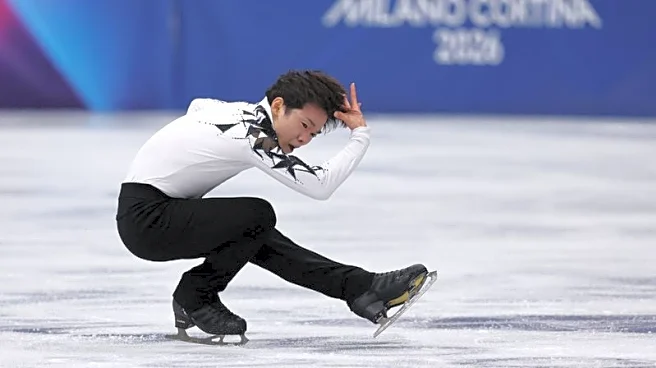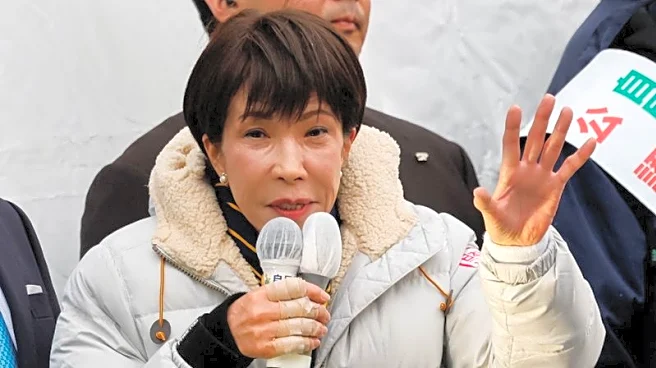What is the story about?
What's Happening?
Taiwan has announced the development of a new air defense system, named the 'T-Dome,' in response to increasing military pressure from China. President William Lai revealed the plan during Taiwan's National Day celebrations, emphasizing the need to protect against 'hostile threats.' The T-Dome is designed to provide multi-layered defense, high-level detection, and effective interception capabilities, similar to Israel's Iron Dome. This announcement follows Taiwan's defense ministry warning about China's enhanced ability to attack the island, including military drills simulating an invasion. Taiwan plans to increase its defense spending to over 3% of its GDP next year, with a goal of reaching 5% by 2030. However, the opposition-controlled legislature has blocked several spending bills, complicating the funding process.
Why It's Important?
The development of the T-Dome system is a significant step in Taiwan's efforts to bolster its defense capabilities amid escalating tensions with China. The move reflects Taiwan's commitment to self-defense and its strategic alignment with the United States, which has urged the island to enhance its military readiness. The increased defense spending and the T-Dome project could strengthen Taiwan's deterrence against potential Chinese aggression, impacting regional security dynamics. However, the initiative has sparked political debate within Taiwan, with opposition figures accusing President Lai of using the threat of invasion to consolidate support. The situation underscores the complex geopolitical landscape in East Asia, where Taiwan's actions could influence U.S.-China relations and broader international security policies.
What's Next?
The implementation of the T-Dome system will require substantial financial investment and time, with experts suggesting it may extend beyond President Lai's current term. The project is likely to face challenges in securing legislative approval for increased defense spending. Additionally, Taiwan's strategic decisions will continue to be closely monitored by the United States, which is legally obligated to support Taiwan's defense. The ongoing military exercises and defense enhancements may provoke further diplomatic tensions with China, which views Taiwan as part of its territory. Taiwan's call for China to renounce force in the Taiwan Strait could lead to diplomatic engagements or further military posturing.
Beyond the Headlines
The announcement of the T-Dome system highlights the ethical and political complexities surrounding Taiwan's defense strategy. The initiative reflects Taiwan's determination to maintain sovereignty and resist external coercion, while also navigating internal political divisions. The project could influence Taiwan's international standing, potentially attracting support from other nations concerned about China's regional ambitions. The long-term implications of Taiwan's defense enhancements may include shifts in regional alliances and increased focus on technological advancements in military defense systems.

















